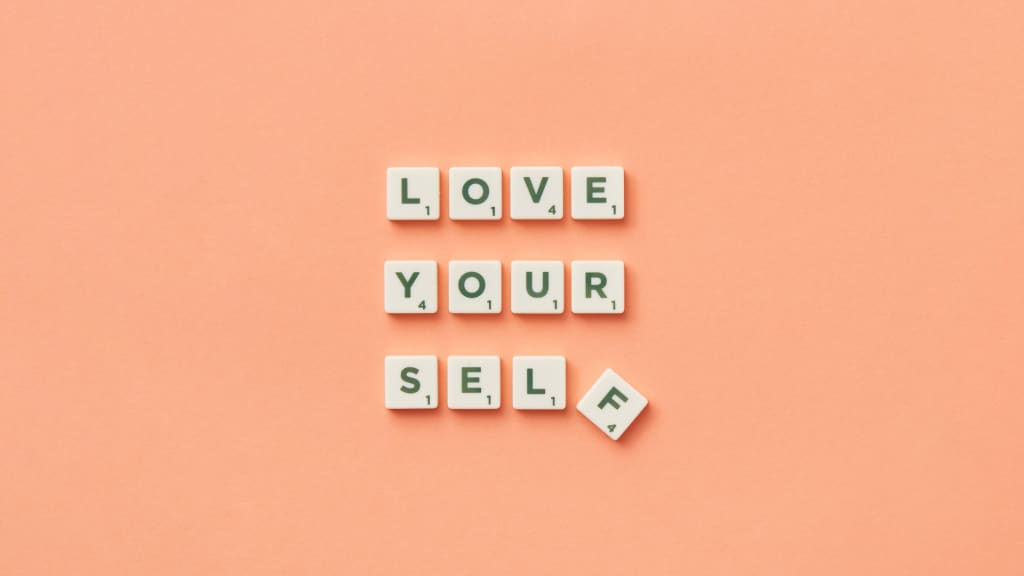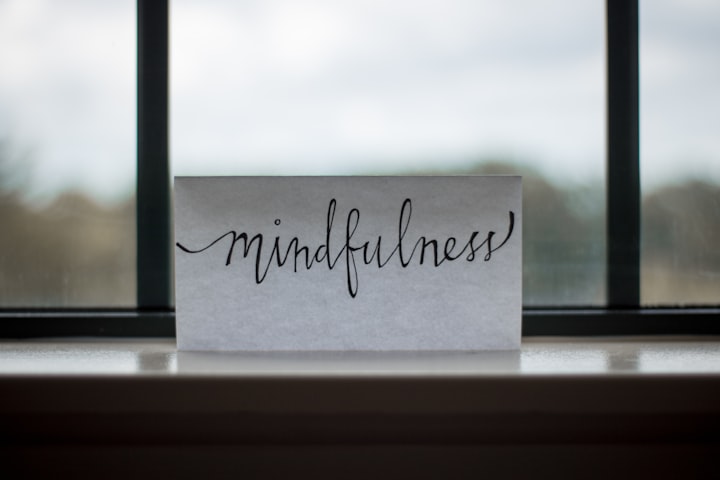How to Stop Negative Self-Talk
Journeying through self-compassion.

It wasn’t until an evening session with my therapist in 2019 that it occurred to me how negatively I talked to myself.
I was very new to therapy and was still hesitant to dig deep, when a self-deprecating joke bounced out of my mouth nonchalantly.
My therapists’ eyebrows nearly leapt off her face when she heard me refer to myself as stupid.
* * *
How we talk to ourselves is a crucial part of loving ourselves wholeheartedly.
It never occurred to me that the negative words I used towards myself could be standing in the way of me loving myself fully.
I’ve been in and out of depression since childhood and I’ve always joked about being born with anxiety.
But even the “joking nature” of our self language can be damaging long-term.
When I’m coming out of a depressive spell, I try to focus on self-love. But it never sticks. I always end up circling back around through this vicious cycle.
Negative thoughts. Suppressing them. Spiraling through a tunnel of worthlessness. Then cry it all out and wake back up to a reality where I want to make better choices.
But it’s not me that’s worthless. It’s those words.
I would never genuinely call someone stupid or an idiot to their face. Sure, I may get mild road rage every once in a while, I’m only human, but I could never imagine saying those words with full truth towards someone.
So why would I continue to speak to myself this way?
How could I fully love myself when I feed my brain words like stupid or idiot?
How could any of us?
* * *
I sat in the chair in my therapists’ office taken aback and not sure how to respond when she asked me if I often use those words when talking about myself.
I honestly, and timidly, responded yes, but I don’t really mean it.
She sat back in her chair and let out an empathetic sigh and I felt it. She didn’t have to say anything. I heard the words come out of my mouth and I felt the weight they carried.
Of course I meant it. There were moments when I really thought so little of myself that I would choose to use words that labeled me unworthy of love and compassion.
I am not a mean person, I hardly have a mean streak in me. But I was, and still am at times, so cruel to myself.
This language and using it jokingly and as a form of self-deprecation was something my friends and I grew up with. It was our banter.
We thought it was silly and trendy to call each other stupid, idiot, or bitch when one of us tripped, stumbled on our words, didn’t know a definition or mathematic equation, or was sassy about something.
But self-deprecating words are demoralizing.
The more we continue to use these words and talk about ourselves with a lack of worthiness, the more down the rabbit hole we go that takes us further and further away from loving ourselves wholeheartedly.
It limits our self-worth to such a small box when, in actuality, we shouldn’t be confined to a box. We are beautifully made beings who deserve a vast open space to fill with love towards ourselves and others.
We all can be clumsy, or be tired and fumble our words. We certainly all are still learning new things every day like the meaning of new words and how to use them to reminding ourselves of how to use fractions and how to calculate a tip manually.
But we have got to start changing the way we speak to ourselves and each other.
When you trip, laugh it off.
When you aren’t sure of a word look it up and learn something new.
When you’re tired and are having a hard time forming a complete sentence, have a little compassion for yourself for making it through a long day.
When you’re joking with your friends remember that their your good Judy and not your bitch.
Just because you think it, doesn’t make it true.
As simple as that phrase is, it was like emerging out of dense fog and seeing clearly for the first time in years when I heard it come out of my therapists’ mouth.
I was so engulfed by the voice in my head that I let her (my voice) have control. I believed everything she said.
Think about it. You spend every day with yourself and hear your own voice in your head every minute of every day, so it’s only normal that you develop trust and a close relationship with your own thoughts.
But when you’re prone to anxiety and depression, it becomes hard to decipher what’s true and what’s not.
The best way to work through this is to say them out loud or write them down, and then replace them with a more positive and compassionate thought. This is an exercise from a workbook that I used in therapy when working on self-compassion.
Untrue Thought: I’m stupid because I dropped and broke a plate when cleaning up after dinner.
Compassionate Thought: I’ve had a long day and it’s just a plate that I can replace. Take a deep breath and be sure to get some rest tonight.
Untrue Thought: I’m fat and hate the cellulite on my legs.
Compassionate Thought: Everybody has days where it’s harder to like themselves and that’s okay. I’m glad I am able-bodied and have strong legs that allow me to move.
Untrue Thought: I’m “bad” for having a cookie after 7:00 pm.
Compassionate Thought: I’m not bad for listening to what I wanted. Food is not good or bad, it’s just, food.
Untrue Thought: So-and-so is such a bitch. Why don’t they ever listen to me?
Compassionate Thought: It hurts when I feel like so-and-so doesn’t hear me. I should sit down and work on communicating that with them.
* * *
Stopping negative thoughts doesn’t happen overnight.
As much as I wish I could tell you it did. It’s a process that takes time.
Look at me for example. I’m 30 years old and I’ve probably spent 15 to 20 of those years believing my negative thoughts. My brain is wired to accept demoralization.
You have to put in the work every day to rewire your brain. You’ll still slip up, I certainly do. But in those moments, take a deep breath, say your thoughts out loud or write them down and take a moment to sit with yourself and process what you’re feeling.
You are unique, intelligent, kind, and beautifully made.
You are worthy of love.
About the Creator
Haley Jones
Writer of food, poetry, and mental health. Traveler. Cat mom. 🏳️🌈






Comments
There are no comments for this story
Be the first to respond and start the conversation.